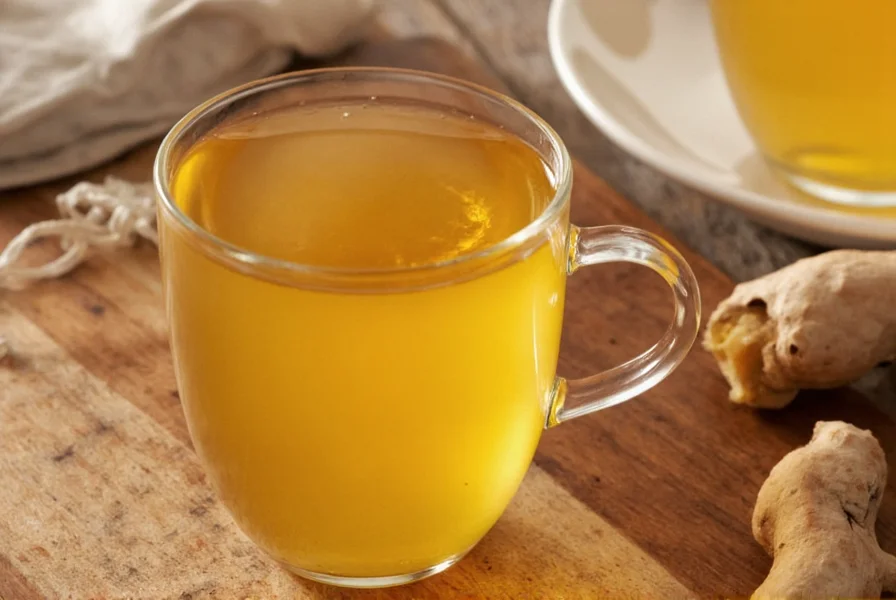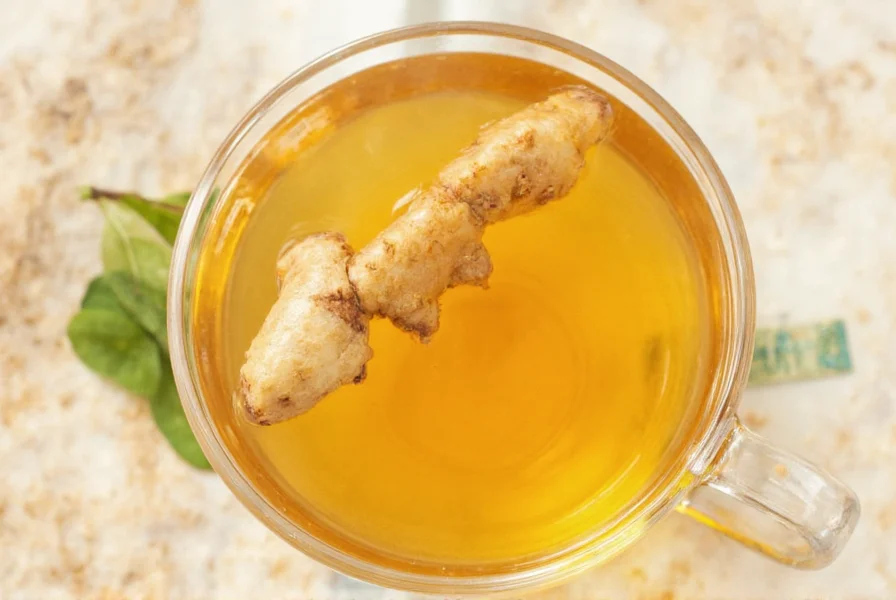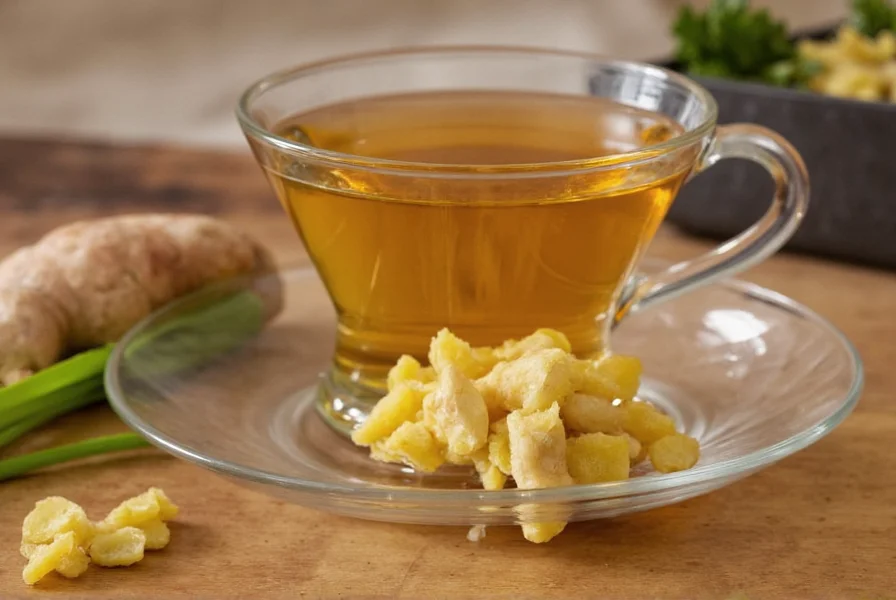Getting the boiling time right for ginger tea makes all the difference between a soothing, aromatic beverage and a bitter, unpleasant drink. Many home tea makers struggle with this simple yet crucial step, often boiling ginger too briefly to extract its full potential or too long until it turns harsh. Understanding the science behind ginger's chemical composition helps explain why timing matters.
The Science Behind Ginger Tea Preparation
Ginger contains volatile compounds like gingerols and shogaols that provide its characteristic flavor and health benefits. These compounds behave differently at various temperatures:
| Boiling Duration | Compound Extraction | Flavor Profile | Health Benefits |
|---|---|---|---|
| 3-5 minutes | Mild gingerol extraction | Subtle, refreshing | Digestive support |
| 5-10 minutes | Optimal gingerol conversion to shogaols | Balanced warmth | Anti-inflammatory, immune support |
| 10-15 minutes | Maximum compound extraction | Strong, spicy | Intense medicinal properties |
| 15+ minutes | Bitter compounds released | Harsh, unpleasant | Reduced benefits |
When you boil ginger, the heat transforms gingerols into shogaols, which have stronger medicinal properties but also more intense flavor. The sweet spot for most palates falls between 5-10 minutes, allowing sufficient time for beneficial compound extraction without developing excessive bitterness.
Step-by-Step Guide to Perfect Ginger Tea
- Prepare your ginger: Peel 1-2 inches of fresh ginger root and slice thinly or grate for more surface area
- Start with cold water: Place ginger in a saucepan with 2 cups of cold water (never start with boiling water)
- Bring to a gentle boil: Heat on medium until water reaches a rolling boil
- Set your timer: Once boiling, reduce to a simmer and start your 5-10 minute timer
- Optional additions: Add lemon slices or honey during the last 2 minutes of boiling
- Strain and serve: Remove from heat, strain into your cup, and enjoy immediately

Variations Based on Your Needs
The ideal boiling duration changes depending on your purpose:
- For digestive relief: Boil for 5-7 minutes - enough to extract compounds that soothe the stomach without overwhelming your system
- For cold and flu prevention: Boil for 8-10 minutes to maximize immune-boosting compounds
- For a mild evening tea: Boil for just 3-5 minutes, then add mint leaves for the last 2 minutes
- For maximum anti-inflammatory benefits: Boil for 10 minutes, then let steep covered for another 5 minutes off heat
Common Ginger Tea Mistakes to Avoid
Many tea enthusiasts unknowingly compromise their ginger tea through these errors:
- Boiling too vigorously: A rolling boil extracts compounds too quickly, increasing bitterness. Maintain a gentle simmer after the initial boil
- Using old or dried ginger: Fresh ginger yields better flavor and more active compounds. Discard ginger that's become soft or moldy
- Adding ginger to already boiling water: This shocks the ginger, causing uneven extraction. Always start with cold water
- Over-boiling with other ingredients: If adding delicate ingredients like mint or chamomile, add them during the last 2-3 minutes of boiling
Storing and Reusing Ginger After Brewing
Don't throw away your ginger slices after one use! Properly stored, boiled ginger can make 2-3 additional batches of tea:
- After straining, place used ginger in an airtight container
- Store in the refrigerator for up to 5 days
- For subsequent brews, reduce boiling time by 2-3 minutes since compounds have already begun extracting
- Freeze used ginger in ice cube trays with water for convenient future use

Maximizing Your Ginger Tea Experience
The perfect ginger tea balances flavor and health benefits through precise timing and technique. Remember that personal preference plays a role - some people enjoy stronger, more medicinal tea while others prefer a milder beverage. Start with 7 minutes as a baseline, then adjust based on your taste preferences and health goals. The quality of your ginger matters as much as the boiling time, so select firm, plump roots with smooth skin for the best results. With these guidelines, you'll consistently create ginger tea that delivers both delightful flavor and maximum wellness benefits.
Does boiling ginger destroy its health benefits?
No, boiling actually enhances certain health benefits of ginger. While some heat-sensitive compounds may degrade, the heat converts gingerols to shogaols, which have stronger anti-inflammatory properties. The key is not to over-boil (beyond 15 minutes) which can reduce overall benefits.
Can I make ginger tea without boiling?
Yes, you can make ginger tea by steeping grated ginger in hot (not boiling) water for 10-15 minutes. However, this method extracts fewer beneficial compounds compared to boiling for 5-10 minutes. The resulting tea will be milder in both flavor and health benefits.
How much ginger should I use per cup of tea?
Use 1/2 to 1 inch of fresh ginger per cup of water. For stronger tea, use 1 inch of ginger; for milder tea, use 1/2 inch. Remember that thicker slices require slightly longer boiling times than grated ginger due to less surface area.
Why does my ginger tea taste bitter even when I boil for only 5 minutes?
Bitterness can occur if you're using old or dried ginger, boiling too vigorously, or using water with high mineral content. Try using fresher ginger, maintaining a gentle simmer rather than a rolling boil, or using filtered water. The skin of ginger can also contribute bitterness, so ensure you're peeling it properly.
Does the type of pot affect ginger tea quality?
Yes, the material matters. Stainless steel or enamel pots work best as they don't react with ginger's compounds. Avoid aluminum pots which can create off-flavors. Glass pots allow you to monitor the tea's color but heat less evenly. Always use a lid during boiling to prevent volatile compounds from escaping as steam.











 浙公网安备
33010002000092号
浙公网安备
33010002000092号 浙B2-20120091-4
浙B2-20120091-4